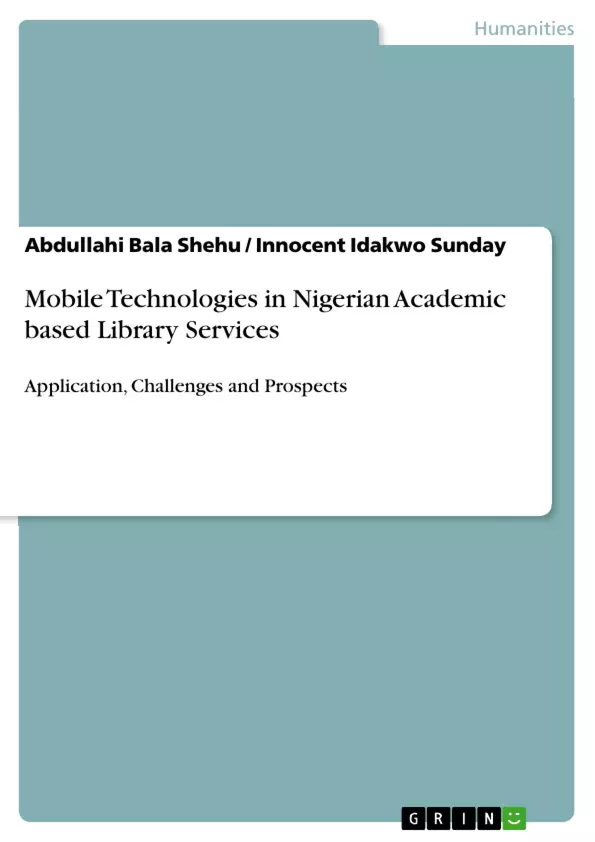Mobile technologies have provided faster access to information and communication and at the same time also challenging libraries to rethink and remodel their service by adopting technological changes since mobile devices has become an essential part of people’s lives. Mobile devices revolutionized communication and changed the pattern in which information is been accessed, information can be accessed using mobile devices anywhere anytime in a convenient and timely manner. As these new devices such as smartphones, tablets, and e-book readers are already part of the mainstream and adequately utilized in various types of libraries in developed nations of the world, libraries of developing nations such as Nigeria must do the same by adopting and implementing mobile technologies in Nigerian academic libraries, since the advantages have been known to be enormous and research has shown that library patrons prefer to access information over Mobile devices. This text explains mobile technologies, its application, origin advantages, status, various examples and the newer methods of information delivery using mobile technologies adopted in developed nations of the world, Mobile databases, catalogs, applications.it also describes the present status of mobile technology adoption in Nigerian academic libraries, challenges and way forward.
Inhaltsverzeichnis (Table of Contents)
- Preface
- Chapter 1: The Emergence of Mobile Technologies in Nigerian Academic Libraries
- 1.1 Introduction
- 1.2 Types of Libraries
- 1.2.1 National Libraries
- 1.2.2 Public Libraries
- Chapter 2: Mobile Technologies in Nigerian Academic Libraries: Current Status and Need for Implementation
- Chapter 3: Mobile Services in Academic Libraries: Practices, Databases, Catalogs, and Applications
- Chapter 4: Advantages of Mobile Technology Application in Academic Libraries: Essentials, Implementation, and Newer Technologies
- Chapter 5: Barriers to the Adoption of Mobile Technologies in Nigerian Academic Libraries and the Way Forward
- Acknowledgments
Zielsetzung und Themenschwerpunkte (Objectives and Key Themes)
This text aims to examine the role of mobile technologies in Nigerian academic library services. It explores the application, challenges, and prospects of incorporating these technologies into existing library practices.
- The emergence and evolution of mobile technologies in Nigerian academic libraries.
- The advantages and challenges of implementing mobile technologies in academic libraries.
- The various mobile services available and their application in academic libraries.
- The essential considerations for successful implementation of mobile technologies in libraries.
- The barriers to adoption of mobile technologies in Nigerian academic libraries and potential solutions.
Zusammenfassung der Kapitel (Chapter Summaries)
Chapter 1 traces the emergence of mobile technologies in Nigeria and examines the different types of libraries in the country, focusing on the role and services provided by academic libraries. Chapter 2 explores the current status of mobile technology adoption in Nigerian academic libraries and highlights the need for further implementation. It also describes various mobile devices in use. Chapter 3 delves into the specifics of various mobile services offered in academic libraries around the world, including mobile databases, catalogs, applications, and subject guides. Chapter 4 discusses the advantages of mobile technology application in academic libraries, essential considerations for implementation, and newer mobile technologies employed in developed countries.
Schlüsselwörter (Keywords)
This text focuses on the key topics of mobile technologies, library services, academic libraries, information access, challenges of implementation, and mobile application in the Nigerian context.
- Citation du texte
- Mr Abdullahi Bala Shehu (Auteur), Innocent Idakwo Sunday (Auteur), 2020, Mobile Technologies in Nigerian Academic based Library Services, Munich, GRIN Verlag, https://www.grin.com/document/539471



